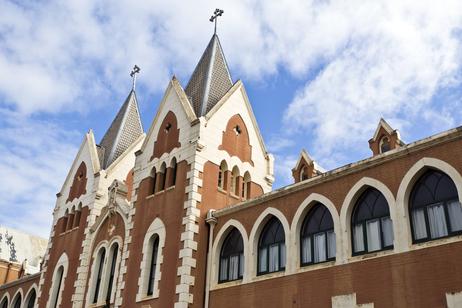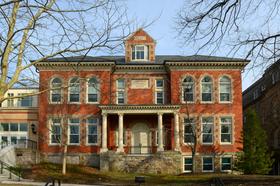School is school – or so many parents think. What you may not realize, however, is that there are many different types of schools, even within the category of public schools. The school you send your child to will largely depend on where you live and what options are available, but if you have multiple options to choose from, it is essential to learn what you can about each one before making your choice. The right school for one child may not be suitable for another, so consider your options carefully.
Not only is a public school very different from a private school but there are over a dozen different types of schools (both public and private) scattered across the country. In this article, you’ll receive a brief overview of each of these school options, so if the choice becomes yours, you’ll be fully equipped to make an informed decision. Keep reading to learn the basics about different schooling options in the United States.
How is Public School Different from Private School?
The main difference between private and public schools is the source of funding. Public schools are funded by local, state, or federal government, while private schools are generally funded through student tuition. Because public schools receive federal funds, they must also follow federal guidelines, which sometimes limit what public schools can teach. Private schools are not subject to the same standards, so they have more freedom in developing their curriculum. Licensing requirements are pretty strict for public schools, but private school teachers may not even need a degree in their teaching field. Both public and private schools have pros and cons, which differ depending on the type of school. Keep reading to learn more.
This video discusses how public and private schools compare.
Overview of 4 Types of Public Schools
Though you may think that one public school is like any other, there are four distinct types of public schools – here is a quick overview of each:
- Traditional Public School – Most traditional public schools are funded by the local, state, and federal government, which means that they have a say in the curriculum and how the school is run. Teachers must have a license to teach, and students are sent to public schools based on where they live. Standards for each state may differ, but all public schools must adhere to specific standards.
- Magnet School – A magnet school is a public school specializing in a particular area, such as science, technology, foreign language, or the arts. These schools are accessible to students and are generally operated by a specific district or group of districts. Some magnet schools are highly selective and choose students based on achievement, while others use a lottery system to select students. Magnet schools are also very intentional about creating diversity within the student population.
- Charter School – A charter school is almost a hybrid between a traditional public school and a private school. Charter schools are free, but parents must submit applications for their children to attend. Anyone can start a charter school and apply for state funding. However, if the school doesn’t meet specific standards within 3 to 5 years, that funding will be withdrawn, and the school will close. Teachers and administrators at charter schools have more autonomy than most public schools.
- Online School – One of the newest options in public school education is online or virtual schools. These schools follow the exact educational requirements of traditional public schools, but students attend classes online instead of in a school building. This type of school offers more flexibility to parents, students, and teachers.
This video explains the differences between magnet and charter schools.
Overview of 8 Types of Private School
In the same way that there are different types of public schools, there are also many options for private schools. Here is a quick overview of eight different types of private schools:
- Traditional Private School – A traditional private school is not funded by the government, which means that administrators and teachers have more control over the curriculum – it also means that students are typically charged to attend.
- Boarding School – This type of private school offers housing and food to its students. Boarding school also provides students with a community that offers support and a deeper relationship between students and teachers. Boarding schools also frequently provide a more comprehensive selection of extracurricular activities.
- Montessori School – This type of school is designed to encourage individuality among the students, enabling them to explore their unique interests through hands-on activities. Children at Montessori schools are encouraged to ask questions and make their discoveries in a well-rounded curriculum that includes basic math, science, and language. Another point of interest is that most Montessori schools keep students together in the same class with the same teacher for three years.
- Language Immersion School – This private school option immerses students in a second language. Teachers are bilingual and teach in both English and their second language to help students learn more quickly. Programs are generally designed for students whose native language is English, with different levels of immersion. Total immersion is a system in which the lower grades are taught entirely in the foreign language and older grades in English. Partial immersion is where half of the subjects are taught in a foreign language.
- Private Special Education School – This is a private school option specifically for students with special needs, such as students with ADHD, autism, severe anxiety, or a learning disability. These schools are designed to accommodate students with special needs, and the teachers and administrators undergo additional training.
- Religious School – A religious school is a private school that is affiliated with a particular religion. They are usually classified as independent private schools with a religious affiliation. Because they are private schools, religious schools are free to include whatever religious education they like.
- Parochial School – This type of private school is a religious private school funded by a local church. The term “parochial” means the school partners with a local church. In a way, the school is an extension of the church.
- Waldorf School – This type of school has a unique view of child development and, therefore, a unique curriculum. Waldorf schools are run by nonprofits. They focus on physical engagement during the first seven years and emotional development over the next seven years. At the age of 14, students focus on intellectual material.
This video describes Montessori schools.
By now, it should be clear that every school is as unique as its students. Each school and every type of school has its benefits and drawbacks, so the choice that best suits your child may not be the right choice for someone else. It is up to you to know what is best for your child and to choose the school that will provide the best education possible.
Questions? Contact us on Facebook. @publicschoolreview















